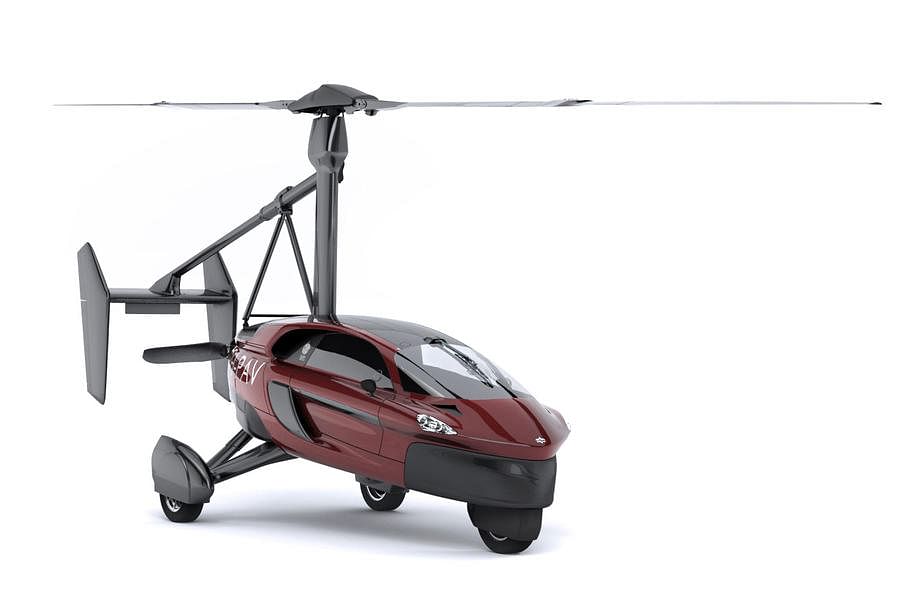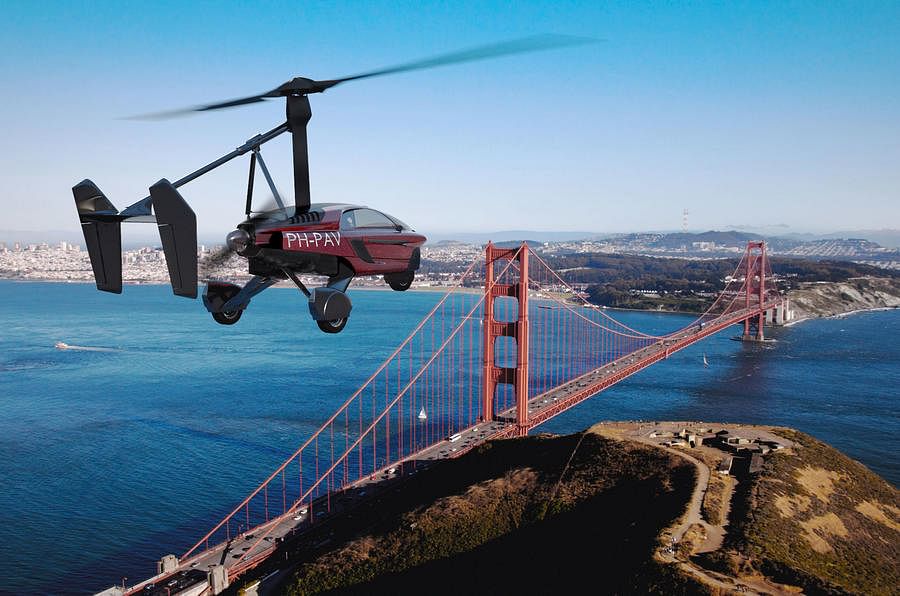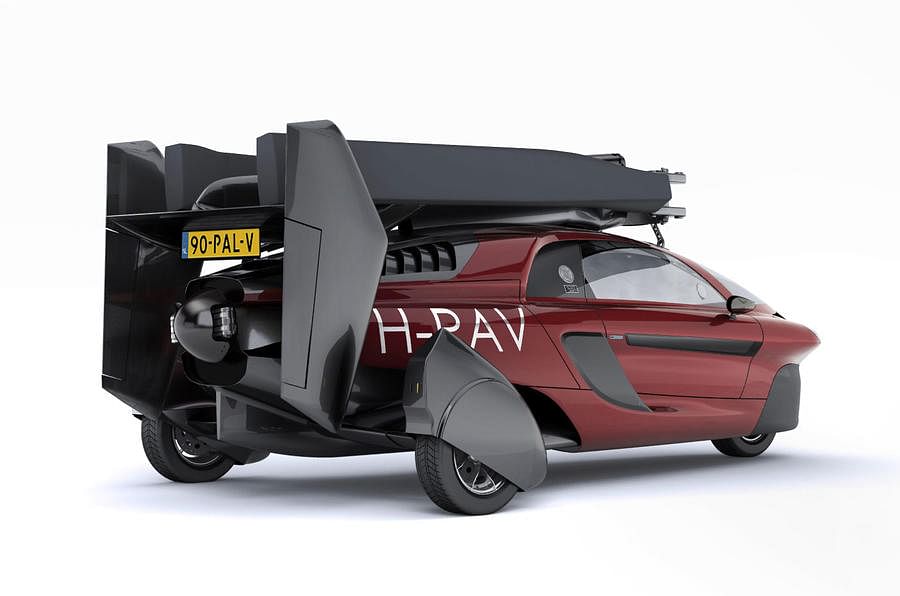World’s first production road and air-legal flying car revealed
Dutch company PAL-V is selling its three-wheeled Liberty flying car now, with a 99bhp driving engine and 197bhp flying engine
The PAL-V Liberty, the world’s first commercial flying car that can be ordered for around 425,000 British Pounds( Rs 3.8 crores), has made its public debut at the Geneva motor show.
Dutch manufacturer PAL-V claims its Liberty is fully compliant with existing regulations and says it represents a “pivotal time in aviation and mobility history”. It expects to make first customer deliveries next year.

The flying car has launched with the Liberty Pioneer Edition, which is priced from €499,000/$599,000 on PAL-V's website, before taxes. This price includes some flight instruction sessions, power heating and personalisation options.
Only 90 will be sold, with around half of them headed to Europe, and after their delivery, the manufacturer will start delivery of the Liberty Sport model.
 That model is priced from €299,000/$399,000 (around £254,000) before taxes on the manufacturer’s website.
That model is priced from €299,000/$399,000 (around £254,000) before taxes on the manufacturer’s website. It doesn’t have the same level of personalisation available as the Pioneer Edition but still comes with flying lessons, while options include power heating and carbon fibre detailing.
The Liberty has a three-wheel layout and rotor blades on the roof which folds away. It's effectively a gyrocopter aircraft with two engines. Its Rotax engine-based dual propulsion drivetrain includes one engine for driving and one for flying, with an unpowered large rotor on top that provides lift, while an engine-powered blade on the rear of the vehicle gives thrust.
It has lowered suspension and a tilting two-person cockpit.

To convert the car from drive to fly mode or vice versa takes around 5-10 minutes, according to PAL-V. The rotor mast unfolds automatically, but the driver must pull out the tail section, unfold two rotor blades and take out the prop to ready it to fly.
You also need a license to fly, and you can’t just take off and land anywhere; PAL-V says the Liberty requires take-off space of around 90-200x200 metres without obstacles. It says that small airstrips, aerodomes, glider sites and ultralight airfields will be most appropriate.
The manufacturer says the noise that the Liberty generates in flight will be comparable to a small fixed-wing aeroplane, saying it will be “much less” than a helicopter.
The drive mode engine has 99bhp and a top speed of 100mph, with 0-62mph sprint taking 9.0sec. Fuel economy is a claimed 31mpg with a range of 817 miles.
In the air, the Liberty can climb to a maximum altitude of 3500m, and its 197bhp flying engine can propel it up to a top speed of 112mph. Its range is a claimed 310 miles.
The Liberty will be assembled in the Netherlands, with specific parts and systems manufactured by other companies in different countries.
PAL-V collaborated with Italian design agencies for the car and conducted test programmes with concepts in 2009 and 2012.
Robert Dingemanse, PAL-V's CEO, said: "After years of hard work, beating the technical and qualification challenges, our team succeeded in creating an innovative flying car that complies with existing safety standards determined by regulatory bodies around the world."
RELATED ARTICLES
Hyundai unveils next−gen highly efficient hybrid system
The next-gen hybrid system is claimed to offer 45% better fuel efficiency and 19% more power compared with ICE powertrai...
Horse Powertrain reveals hybrid conversion for electric cars
Engine-making joint venture of Geely and the Renault Group announces new hybrid powertrain that fits into the same space...
Aisin to produce hybrid motor for Mitsubishi in Thailand
The hybrid drive motor and gearbox, will be produced at Aisin Powertrain (Thailand) Co for use in the Mitsubishi XForce ...






 07 Mar 2018
07 Mar 2018
 3637 Views
3637 Views
























 Autocar Professional Bureau
Autocar Professional Bureau




